Is Colonia del Sacramento Worth Visiting? [2024]
/Is the charming city of Colonia del Sacramento in Uruguay worth visiting?
The serene coastal city of Colonia del Sacramento is a Uruguayan gem. Found just across the Rio de la Plata from the megacity, Buenos Aires, Colonia is often overlooked as a traveller’s destination. But with easy access from its neighbours and a treasure trove of potential attractions to explore, we decided to visit and answer the question – Is Colonia del Sacramento Worth Visiting?
Brief History of Colonia del Sacramento
The colourful streets of Colonia del Sacramento.
Colonia del Sacramento may seem like another unsuspecting ‘pretty city’ in South America, but there’s so much deeper than what it seems on the surface. Beyond its carefully curated cobbled streets, pastel-painted buildings and coastal charm is a city steeped in history.
In 1680, the Portuguese founded the city as a way of resisting Spanish colonisation. What followed was a century-long dispute for the city before it was finally relinquished. Despite the violent border dispute between Portugal and Spain, Colonia still retains a lot of its architecture today – found in the Historic Quarter. A mixture of both styles of architecture, the city showcases designs that are hard to find in the continent.
Colonia’s Historic Quarter is a UNESCO World Heritage Site.
Today, Colonia del Sacramento is a much-beloved UNESCO World Heritage Site thanks to its well-preserved urban landscape.
How to get to Colonia del Sacramento from Buenos Aires
Ready to embark on a Colonia Express ferry from Buenos Aires to Colonia del Sacramento!
For a fairly small city, Colonia del Sacramento is surprisingly quite easy to get to. By far the most common option for travellers to get to Colonia del Sacramento from Buenos Aires in Argentina is by ferry. It takes just over an hour (one-way) to get to and from Colonia when departing from Buenos Aires. There are a few main ferry companies to choose from but I would highly recommend choosing Colonia Express as your mode of transport.
The tickets on Colonia Express are often a lot cheaper, and they also offer day tour packages that include snacks on board and other perks.
Comfortable seating on the Colonia Express fast ferry.
Before departing, make sure to arrive around 90 minutes before your departure time. While this may seem ridiculously early, remember that you’ll be crossing national borders from Argentina into Uruguay, so there may be lines for check-in, security and customs. Bring your passport as this will obviously be needed when entering another country.
Here’s a rundown of what happens on the day:
1. Arrive at the Colonia Express Ferry Terminal
If you just input into Google Maps “Ferry Terminal”, you will end up at the wrong location. With Buenos Aires being a large port city, there are many ferry terminals and it’s too risky to not do your research beforehand.
The ferry terminal you want to get to is titled “Colonia Express” on Google Maps, and specifically the address is as follows:
Av. Elvira Rawson de Dellepiane 155, Buenos Aires
If you’re using a rideshare app such as Cabify, Uber or DiDi, make sure that the pin to on map looks like it is at least in the Puerto Madero area, across Casino Buenos Aires. To be sure, you can always double check with your driver that you’re going to the correct terminal – a simple mention of “Colonia Express Terminal” should suffice, but if not, you can always have Google Translate handy.
2. Check-In to your ferry
If the self-check-in machines in the terminal are available, feel free to use these. If not, you might have to line up at the check-in counter, present your reservation code and allow the Colonia Express staff member to present you with your tickets. If you are bringing luggage, this is your chance to get them cleared too and ask any questions you may have about that.
This process took me less than 5 minutes as there was no one in my line.
3. Clear security and customs
Once you’ve checked in to your ferry, it’s time to move through to the security line. The security process didn’t take long at all, and was no where near as long-winded as what you would find at an airport. They are usually quite casual about these checks, but of course, make sure you’re not carrying anything you’re not supposed to.
After that, you’ll move through the customs process. First, you need to be cleared to exit Argentina – this takes a few seconds if it’s not busy. Then, you need to enter another line to enter Uruguay. Here, you’ll get a passport stamp to indicate that you’re entering Uruguay at the end of the ferry journey. Make sure you get stamped because when you come back to Argentina (or enter another country from Uruguay), the customs officer will want to see it.
The whole process is quite easy and there will plenty of staff members to help you get to the right place.
4. Time for your ferry journey!
Happy days on the Colonia Express ferry.
Find your boarding gate and take a seat. Then, when boarding is ready, you’ll enter the ferry and find a seat. Sit back, relax, and enjoy!
Overall, my return ferry journey was fantastic. There was ample room on the ferry, and even an opportunity to stay outside and take in the views. The seats were extra comfortable, and the staff were super attentive to any questions I had.
Chilling out on the open deck on the way to Colonia del Sacramento.
I would thoroughly recommend choosing Colonia Express when traveling from Buenos Aires to Colonia del Sacramento. You can find more information about their services on their Official Website.
How to get to Colonia del Sacramento from Montevideo
If you’re arriving to Colonia del Sacramento from Montevideo, the process is even easier as you won’t have to clear customs.
A beautiful house in Colonia del Sacramento.
There are several bus companies offering this easy, 3-hour journey from Montevideo to Colonia. My best advice is to turn up to Montevideo Bus Station perhaps a night or two before your intended departure date, and look around for a bus company and departure time that suits you. Tickets are very cheap at usually less than 10USD one-way.
Do I need a tour to visit Colonia del Sacramento?
Is a tour necessary when visiting Colonia del Sacramento?
Although getting to Colonia del Sacramento is easy, I would still recommend visiting with a tour if you’re interested in learning about the history of the city. As Colonia is a city deeply rich in history and architecture, it’s not really a place where you will be able to capture its full beauty, culture and value just by walking around on your own without context.
For example, an unsuspecting attraction such as the Puerta de la Ciudadela or Faro de Colonia del Sacramento may seem like your standard bridge or lighthouse, but there is so much history to be found here that only a knowledgeable tour guide can fully explain.
Handpicked tours of Colonia del Sacramento from Buenos Aires
Asher at La Calle de los Suspiros, a colourful street in Colonia
For the reasons above, we’ve handpicked a list of high-quality, well-rated tours that will maximise your experience in the Colonia, allowing you to absorb the history behind the pretty city:
Day Tour to Colonia from Buenos Aires – This economical day tour option includes pick up from your hotel in Buenos Aires, as well as a comprehensive walking tour of Colonia’s main sights. This is the best choice for budget-minded travellers.
Small-Group Day Trip to Colonia from Buenos Aires – This is an even more comprehensive tour option than the previous tour, as it lasts for approximately an hour longer, and is limited to small groups only. If you’re looking for more time with your guide and a more in-depth experience, this is our top choice for you.
What is there to see and do in Colonia del Sacramento?
Puerta de la Ciudadela, Colonia del Sacramento
I’ve seen a lot of opinions around the blog world that there’s apparently ‘not that much to do’ in Colonia del Sacramento, and I would wholeheartedly disagree. Sure, it’s not your typical city with big ‘must-do’ sights, but there is still plenty to see and do that will last you at least a couple of days. Here are some of the best things to see in Colonia del Sacramento:
Barrio Historico
The Barrio Historico (Historic Quarter) in Colonia del Sacramento is its shining star. Spend a few hours taking in the charming streets, old buildings and cute cafés dotted around the town.
Faro de Colonia del Sacramento (the city’s lighthouse)
Visit Puerta de la Ciudadela, Faro de Colonia del Sacramento, La Calle de los Suspiros, Basilica del Santisimo Sacramento, Convento de San Francisco, Bastion de San Miguel and other historic attractions.
Basilica del Santisimo Sacramento in Colonia
If you’re a fan of museums, check out Granja Colonia, Museo del Ferrocarril or the Museo del Origami.
The best thing you can do when visiting the Barrio Historico is to take it slow – don’t rush Colonia’s treasure trove of underrated attractions. If you do, that would mean that you’re missing out on the real charm behind the city.
Rio de la Plata
The Rio de la Plata surrounds Colonia del Sacramento.
The Rio de la Plata is the body of water in between Argentina and Uruguay. From Colonia del Sacramento, there are numerous viewpoints where you can take in its beauty – the Faro de Colonia del Sacramento (the city’s lighthouse), is one the most popular lookout spots.
Rambla de Colonia
Strolling down Rambla de Colonia.
The Rambla de Colonia is the main boulevard linking Colonia’s Historic Quarter with the newer part of town and its beaches, such as Playa Urbana El Alamo and Playa Urbana las Delicias.
We walked from Barrio Historico down to the beaches and it was such a nice stroll. From here, we were able to walk down the green hill to any beaches that caught our eye.
Avenida General Flores
The pretty tree-line streets of Colonia del Sacramento
Avenida General Flores is a wide tree-lined street featuring many of Colonia’s most popular shops, cafés and restaurants. It has a slight hipster/beach town vibe to it (as it should!), and we loved popping in and out of the souvenir stores and enjoying some gelato.
Centro Cultural Bastion del Carmen
Asher at the Centro Cultural Bastion del Carmen
The Centro Cultural Bastion del Carmen is a free cultural center that features the work of local artists and exhibitors. In particular, you should also walk through the main building into the outside garden where there are plenty of photography opportunities.
Muelle del Puerto de Yates
Muelle del Puerto de Yates serves as Colonia’s marina and local fishing spot. It’s a very pretty place to sit down on the bench and take in the views, and it’s also a famous spot to watch the sunset.
Should I Day Trip or Stay Over in Colonia del Sacramento?
To day trip or to stay over in Colonia del Sacramento?
I personally would stay over in Colonia del Sacramento for at least 1 or 2 nights. There’s actually quite a lot to see and do in the city. If you’re interested in just getting a taste of Colonia and looking for a getaway from the buzz of Buenos Aires, then I would say a day trip is fine.
We would recommend exploring Colonia for more than a day if possible.
However, if you’re looking to venture beyond the surface, I would spare at least 2 full days in the city – one full day to explore the Historic Quarter, and one full day to explore everything else (the newer part of town, the beaches, and maybe a museum or two).
Where to stay in Colonia del Sacramento
Once you’ve made up your mind to stay over in Colonia del Sacramento, check out these accommodation options that we’ve personally handpicked for you.
Budget: Hostel Parece Mentira
It’s pretty rare to find such affordable accommodation in Uruguay but the Hostel Parece Mentira does just that! Located just a few minutes’ walk to the historic quarter, this is a suitable option for budget-minded explorers.
You can take a closer look at Hostel Parece Mentira by clicking here.
Mid-Range: El Mirador Hotel & Spa
The El Mirador Hotel & Spa is a great all-round hotel that also doubles up as a relaxing spa. It’s located just outside the historic quarter, but still just a short distance away.
You can take a closer look at El Mirador Hotel & Spa by clicking here.
Luxury: Charco Hotel
Charco Hotel is an impeccably decorated boutique hotel right in the heart of the Historic Quarter offering unbeatable coastline views.
You can take a closer look at Charco Hotel by clicking here.
Final Verdict – Is Colonia del Sacramento Worth Visiting?
Would we recommend visiting Colonia del Sacramento?
Yes, absolutely. I didn’t know what to expect crossing into Uruguay’s borders, but I’m so glad I did. Colonia del Sacramento was an incredibly picturesque city with plenty to learn, absorb and admire.
Yes, Colonia del Sacramento was awesome!
Not only did I appreciate the unique architecture, beaches and beautiful nature, I also gravitated towards the Uruguayans’ friendly and welcoming attitudes. I actually found Uruguayans to be some of the friendliest people throughout my South American trip.
Have you made up your mind on visiting Colonia del Sacramento in Uruguay? Have any questions for us? Let us know in the comments below!
Find out more about my travels on Instagram.

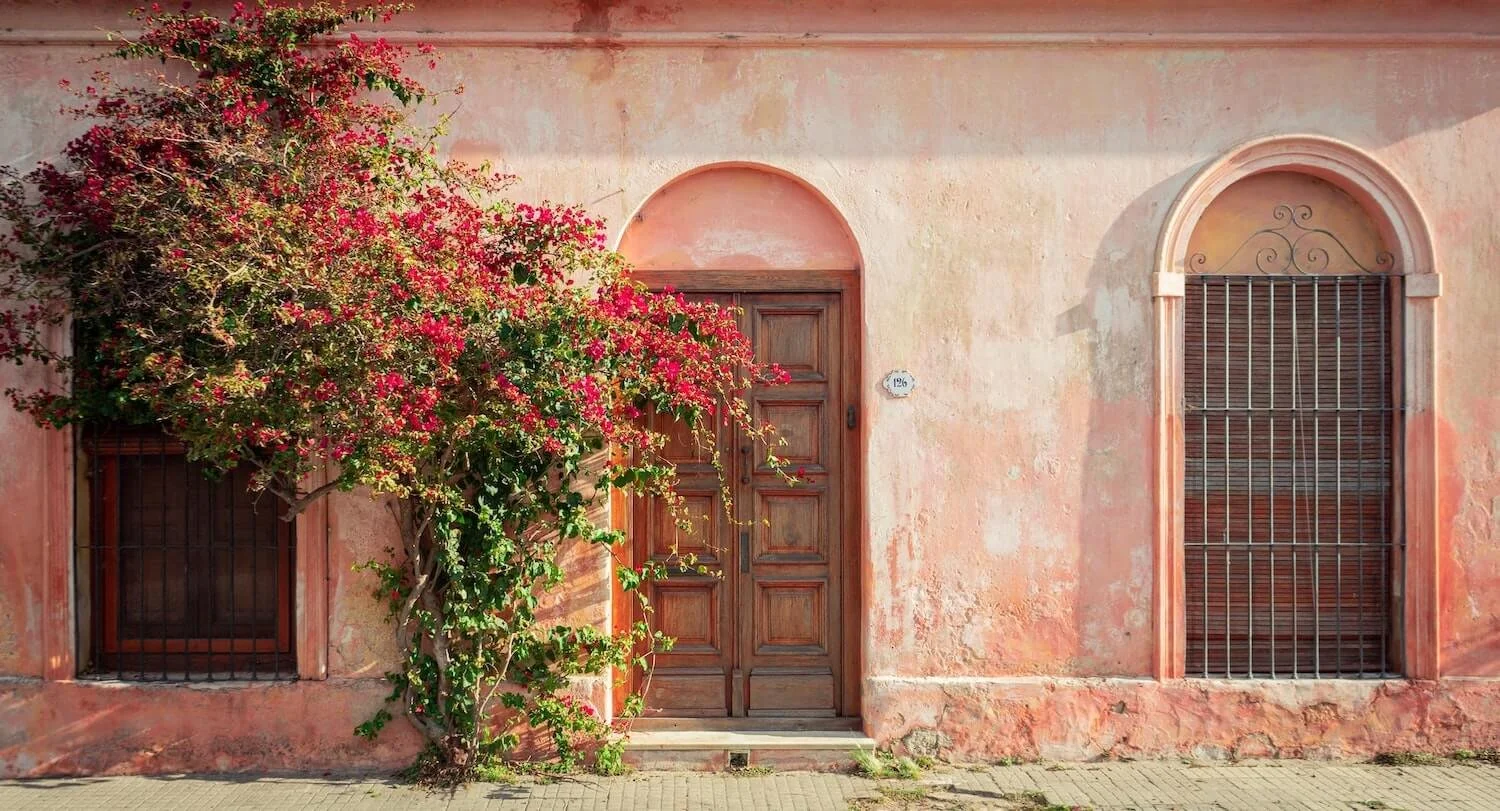














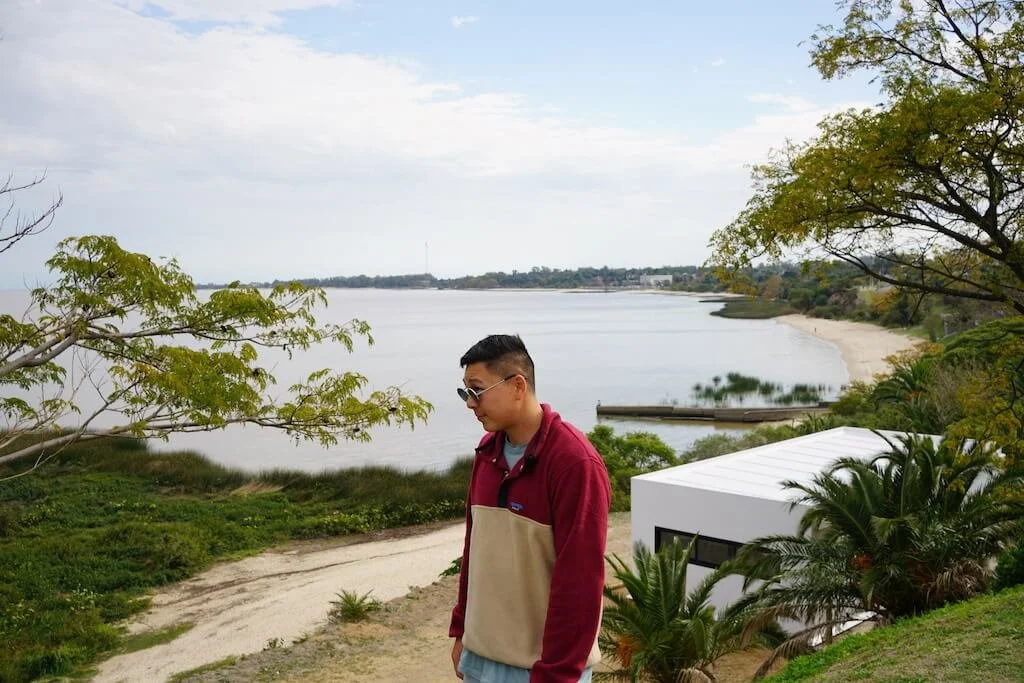






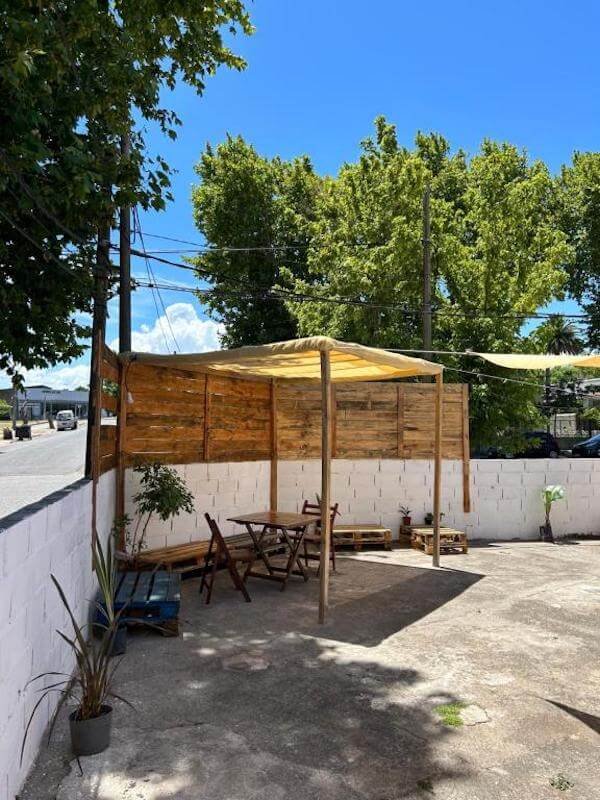



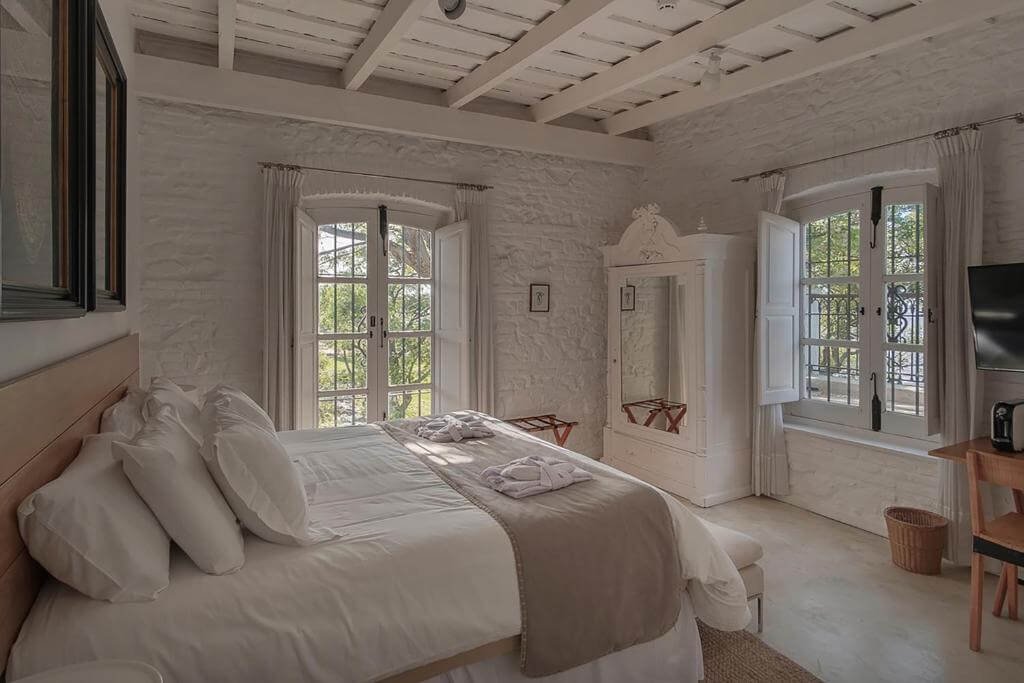
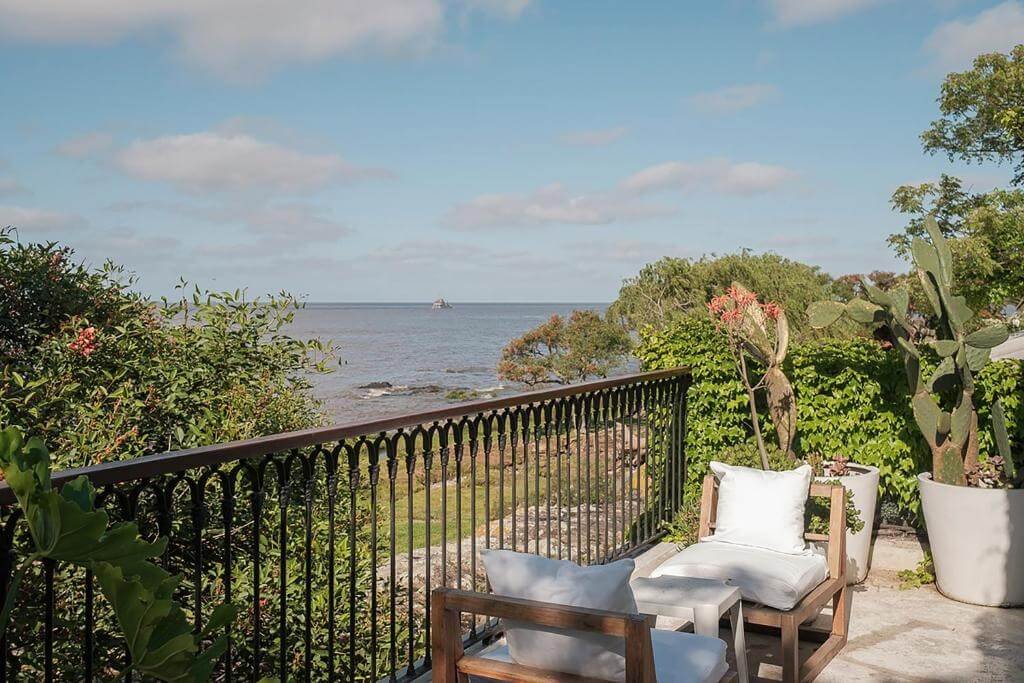



![Do I Need a Guided Tour to Visit Rio de Janeiro? [2023]](https://images.squarespace-cdn.com/content/v1/59d89989bebafb24a356f24c/1687237565870-WHOH75V3HF9JBEH6RN2S/Christ+1.JPG)
![Is a Machu Picchu Day Trip Worth It? [2024]](https://images.squarespace-cdn.com/content/v1/59d89989bebafb24a356f24c/1687933207239-N5MAJV1089WD0XLHEUHC/MP+7.JPG)
The Perito Moreno Glacier is one of the world’s most instantly recognisable glaciers. Although many choose to visit during the warmer months, we visited in the frosty winter to find out if the experience was still as amazing. Turns out – we loved it and want to convince you that you should visit during winter too. Here are 5 Reasons to Visit Perito Moreno Glacier in the Winter.